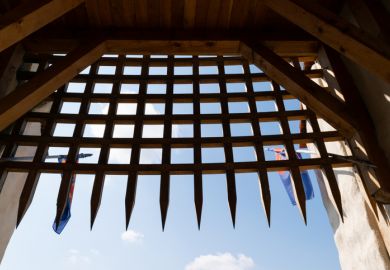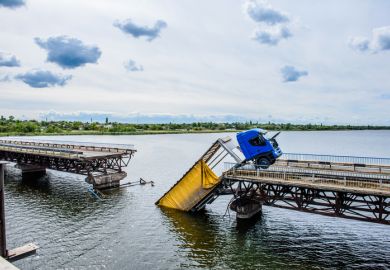The rector of a Spanish university and collaborators from his research group established a “citation factory” to artificially inflate their bibliometric standings, a newly published report alleges.
The Spanish Committee on Research Ethics, an advisory body to the Ministry of Science, Innovation and Universities, commissioned a report on the publication activity of the computer scientist Juan Manuel Corchado, rector of the University of Salamanca, in the wake of media reports by Retraction Watch and El País.
Report authors Emilio Delgado López-Cózar and Alberto Martín Martín conclude that Professor Corchado, who was appointed Salamanca rector in May, had employed “questionable publishing practices”, exploiting an “extensive” academic network “aimed at producing publications and citations” in order to “shine” in researcher rankings.
Professor Corchado has denied wrongdoing, claiming that he was the victim of “an unprecedented persecution”.
In their report, Professor López-Cózar and Dr Martín Martín found that publications by Professor Corchado and his associates “massively and irregularly” referenced papers by the rector and members of the BISITE (bioinformatics, intelligent systems and educational technology) research group, which the rector directs. The authors also highlighted “unnatural” citations of papers published in the journal Professor Corchado edits, ADCAIJ: Advances in Distributed Computing and Artificial Intelligence Journal.
This “irregular” referencing was detected in works published in the University of Salamanca’s academic repository, known as Gredos; publications edited by university publisher Ediciones Universidad de Salamanca; papers published on ResearchGate; and conference proceedings published by Springer Nature. Tim Kersjes, head of research integrity resolutions at Springer Nature, said that the publisher had been “investigating these concerns and expect[s] to conclude this investigation very shortly”.
The platforms were linked by two characteristics, the report found: they either “exercised little or no editorial control” over the works published, or “editorial control was in the hands of members of the BISITE group or other members of the University of Salamanca”.
The report authors also point to incidences of “excessive citation” in which “dozens or even hundreds of references” were cited “to support a single statement”. They also highlighted Professor Corchado’s scientific hyperproductivity, noting that he published more than 80 papers in 2018.
Analysing the Salamanca rector’s public Google Scholar profile, which has since been deleted or made private, the authors found that, in 2016, he had fewer than 4,000 citations, ranking at 1,095 among Spanish scientists with an h-index of 33. By March 2024, Professor Corchado had more than 44,000 citations, with his rank rising to 157th and his h-index reaching 108.
Professor López-Cózar and Dr Martín Martín say their findings imply “a deliberate coordination to cite the works of Professor Corchado and the ADCAIJ journal”, raising “serious concerns about academic ethics within the BISITE group”.
Campus resource collection: Understanding and protecting academic integrity
They further point to “concealment of information” after media reports on the case came out, including apparent deletion of documents from Gredos, ResearchGate and Ediciones Universidad de Salamanca and the disappearance of the rector’s Google Scholar profile.
The authors conclude that, as a result of the “manipulation” of references, the bibliometric standings of Professor Corchado and other academics in the BISITE research group “offer[ed] overestimated indicators of scientific production and impact” that were not “true to reality”.
Salamanca commissioned an independent investigation into Professor Corchado earlier this year, upon the request of the Spanish Committee on Research Ethics. After receiving the resulting report this month, however, the committee stated that it “represent[ed] a missed opportunity to clarify this situation” and reiterated “the need for thorough and impartial verification”.
In a statement, Professor Corchado said he was the victim of a “smear campaign” aimed at “forcing my resignation as rector”, claiming that many in the university community understood “the underlying history of the institution and the true motives behind these attacks”.
“The persistent irregularities, manipulations, and misrepresentations of the information being published not only distort the truth but are used with ulterior motives driven by various interests, including political agendas, personal vendettas, and excessive ambitions,” Professor Corchado said.
He claimed the new report was based on “bibliometrically imprecise databases, including spurious data”, and complained that he had not been given an opportunity to contribute or respond to its findings.
“For all these reasons, I want to make it clear that none of the actions attributed to me can be considered criminal,” said Professor Corchado, adding that he “consider[ed] the matter closed”.
Register to continue
Why register?
- Registration is free and only takes a moment
- Once registered, you can read 3 articles a month
- Sign up for our newsletter
Subscribe
Or subscribe for unlimited access to:
- Unlimited access to news, views, insights & reviews
- Digital editions
- Digital access to THE’s university and college rankings analysis
Already registered or a current subscriber?








